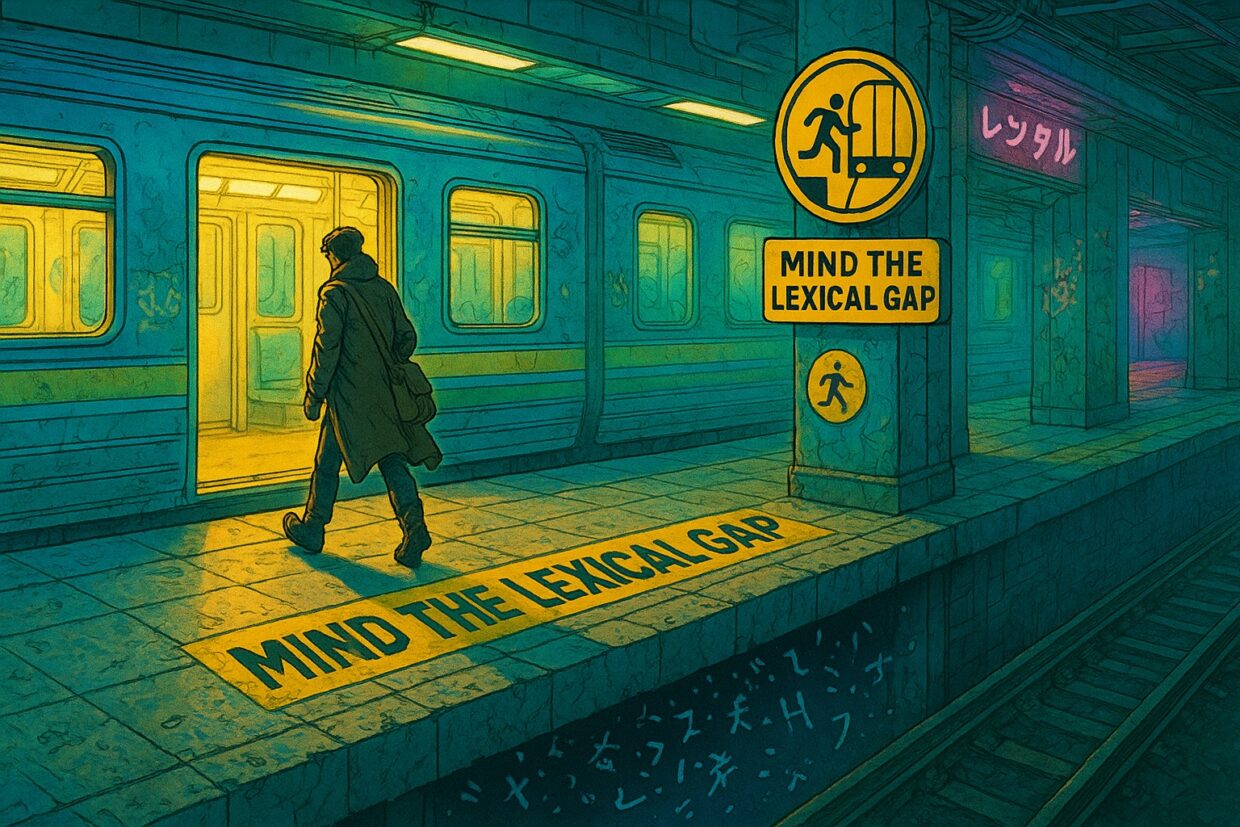Designers should work on and care for Lexical Gaps! In a round about way I found my core fascination: let’s understand our world beyond the problems we encounter. It’s a movement that broadens the horizon of designers and thinkers alike from ‘problem solver’ to ‘everything improver’.
Lexical gaps are things in our lives that are so self evident that they don’t have a name, term, word. So, how do we make a list of things that have no name, but are important in our life? Think of gravity. In our normal life gravity is self evident and always there, but what if you’re making something in outer space. How and what relies on a certain amount of gravity and how do you find out what things happen without us knowing, before we take gravity away? In this conversation with Ron Kersic last year, I caught him by surprise with this insight. Links and fragment below.
Another example of lexical gaps is one of my favorites: Digital Financial Disorientation. It’s the lack of confidence in your financial well being because it’s all digital now, rather than having physical pocket money. It’s an actual situation shared by thousands of people, without them knowing it. They feel financially out of control, or are indeed in financial trouble, but don’t have an idea because their money is ‘out there’, rather than represented by physical tokens.
I actually liked the term so interesting I had two groups of students of the University of Applied Sciences in Amsterdam working on the theme.
Check it out in our podcast: It’s Just A Model, Episode 006, at 45 minutes, 20 seconds:
Also check out more on this episode AND more episodes in your favorite podcast player: https://itsjustamodel.com/2024/05/006-its-just-a-model-muse-vs-oracle/
